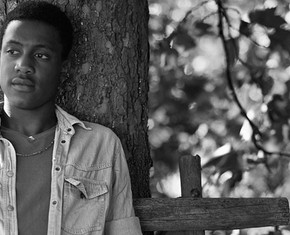The views expressed in our content reflect individual perspectives and do not represent the authoritative views of the Baha'i Faith.
For, in this religion no other command is as rigorously enjoined as the duty of refinement, and it is forbidden that one bring any object into being in a state of imperfection when one hath the power to manifest it in full perfection.
For example, should one build an edifice and fail to elevate it to the utmost state of perfection possible for it, there would be no moment in the life of that edifice when angels would not beseech God to torment him; nay, rather, all the atoms of that edifice would do the same.
For each thing, within its own station, yearneth to attain unto the utmost height of excellence in its own level. – The Báb, (verse from the Persian Bayan) The Gate of the Heart, p. 317.
As a kid reading my fortune cookie, “You have a yearning for perfection,” in a Chinese restaurant where my father took my family out to dinner, I realized I now had a “yearning for perfection.” The oracle said so!
Never, in my wildest imagination, did I ever think that an inanimate thing could somehow have a “yearning for perfection.” That’s impossible. After all, a “thing” can’t think. A “thing” can’t have a “yearning for perfection.” Or can it?
So imagine how surprised and astonished I was when first told of the Bab’s teaching, in the opening quote above.
As a new Baha’i in the 1970s, I anxiously wanted to learn anything and everything I could about the Baha’i teachings. I read all the books available in English. I yearned to learn more.
So I sought out Baha’is who could read the Writings of the Báb and Baha’u’llah (co-founders of the Baha’i Faith) in the original Persian and Arabic languages. That’s when I first learned of the Báb’s teaching about excellence.
Excellence, refinement, perfection — as ethical values — are nothing new. But the Báb’s way of expressing this ethic took me by surprise.
How? You see, I was an aspiring poet. (Not a very good one—which is why I’m not a poet today.) And I had a poetry nightmare.
I had written two unfinished poems. I worked hard on them. Finally, after reaching a point of utter frustration, I gave up on them. But the poems would not leave me alone!
Like ghosts — disembodied spirits — the abandoned poems began to haunt me. These “free verse” works languished in abeyance, anguished in oblivion, suffered death by silence.
Then, one night soon after, I had that nightmare. The two poems took shape. The fraternal literary twins began to move. Fuzzy at first, they shape-shifted. Slowly, they transmogrified. Before my very eyes, the poems came alive. Here’s one of the poems:
Lunula (fingernail tale)
a white sun
in a pink sky
is set
into the flesh of her thumb
as she looks
across her fingers
the sun descends
and is gone.
-Christopher Buck (1972)
Now endowed with personality, my artistic creations took on a life of their own. They became animals. Small, furry creatures. Immature, yet very much alive. The inert became alert — feral, disgruntled, nightmarish.
Suddenly, these living creatures — the embodiments of my lifeless poems — began to stir. They saw me. They recognized me. They peered up. They stared. Their beady eyes glowered. Sheeny fur bristling with primal spleen. Teeth bared. Scary.
Rankled, they snapped at my ankle. They bit hard. WOWCH! That’s when I woke up, startled and shocked.
That’s when I realized, in a mystical dream, the truth of the Báb’s teaching. I realized that if I didn’t strive to bring my literary creations to their perfection, then somehow the “angels would … beseech God to torment” me, and, to make matters worse, “nay, rather, all the atoms of that [thing] … would do the same.”
Yes, poems are things. They can’t think. But somehow, a thing made exists independently of its maker. In other words, any lifeless “thing” that we create — whether artistically or functionally — takes on a “life of its own.”
My subjective dream taught me an objective reality: “Perfecting” your work means appreciating the fact that whatever you create should be your absolute best, especially if other people might somehow benefit by your work.
So the Protestant work ethic — i.e. maximizing productivity, which is at the heart of capitalism — is not enough. The Baha’i work ethic praises quality, not quantity. It exalts craftsmanship.
This is one of the meanings of the Baha’i principle of “work as worship,” as expressed by Abdu’l-Baha:
In this universal dispensation man’s wondrous craftsmanship is reckoned as worship of the Resplendent Beauty. Consider what a bounty and blessing it is that craftsmanship is regarded as worship. …
It behoveth the craftsmen of the world … to exert their highest endeavour and diligently pursue their professions so that their efforts may produce that which will manifest the greatest beauty and perfection before the eyes of all men. — Selections From the Writings of Abdu’l-Baha, p. 145.
You May Also Like
Comments

















By the way, CB, the poetic wordsmithing, the obvious affection ...for language in your posts is attractive. Poetry didn't end.